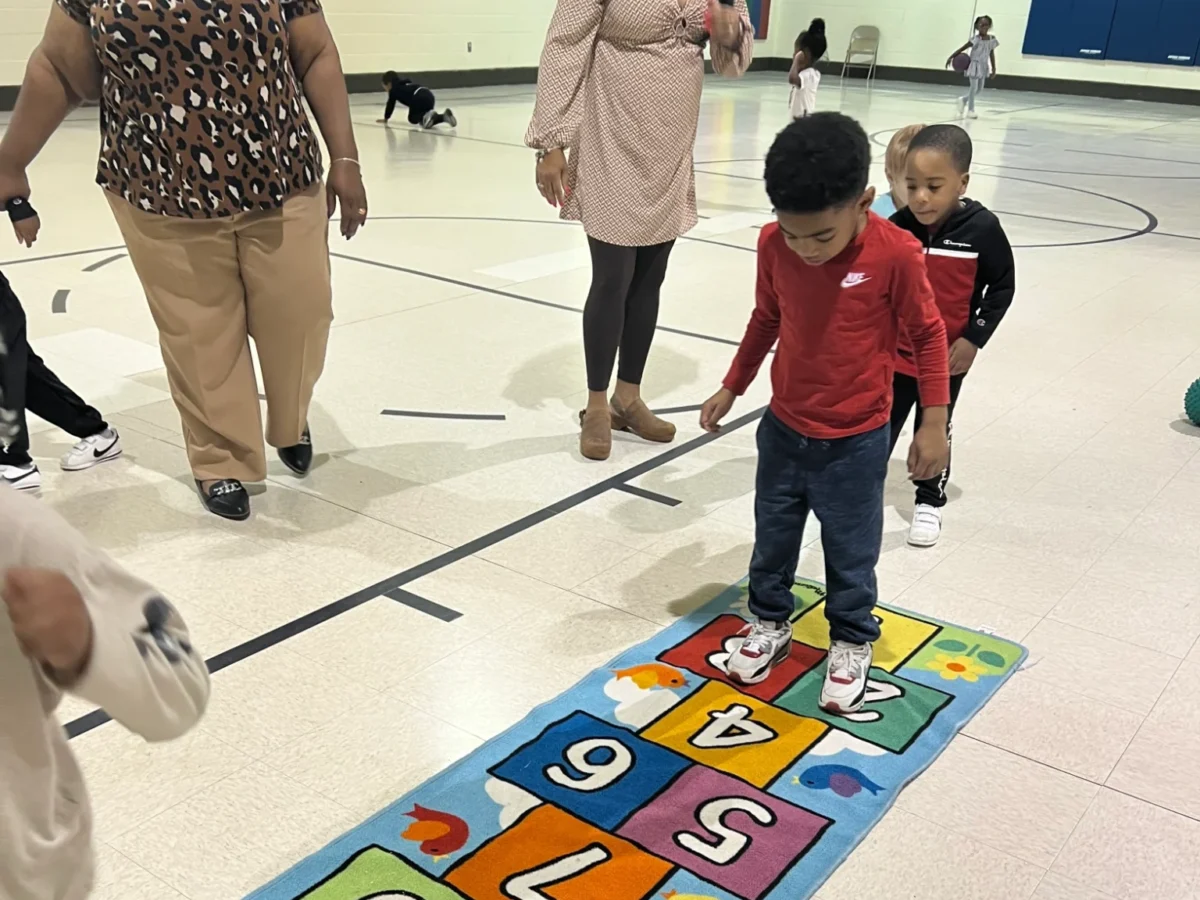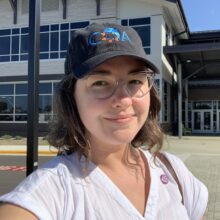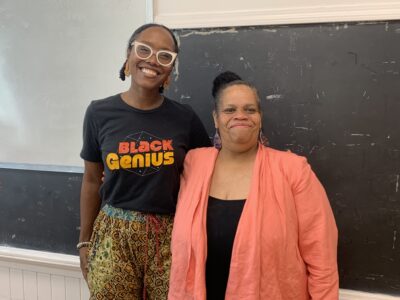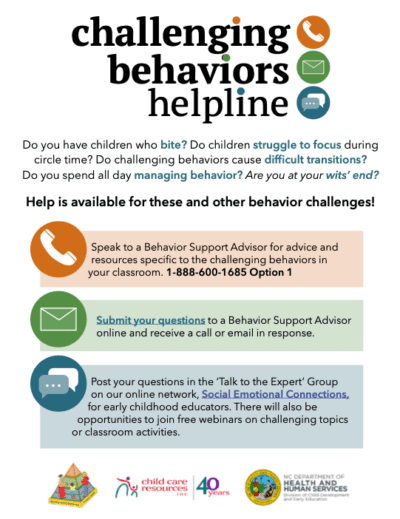

|
|
Bobbi Holley likes to keep the students in her preschool classrooms busy.
“You have to at this age, because otherwise you’ll lose ’em!” Holley said.
That’s one reason Askewville Pre-K in Bertie County is one of the first preschools to be recognized for excellence in physical activity by a statewide initiative called REACH. That project focuses on the role that early childhood educators play in helping young children develop healthy habits.
“I’m just glad it brings awareness to what our program is doing to help make our children more active,” Holley said. “Gym time doesn’t just start when they get to kindergarten.”
Learning through play
Askewville Pre-K is one of just two early care and education (ECE) sites to have earned REACH recognition for physical activity since the initiative launched its pilot phase this year.
According to its website, REACH (Recognizing ECEs Advancing Children’s Healthy Habits) was developed by Wake County Smart Start, NC Farm to ECE, and Go NAPSACC as a way to encourage and celebrate ECE programs that go “above and beyond” licensing requirements when it comes to promoting children’s health.
“It was probably five years ago now that we all realized we were thinking about recognition programs,” said Ellie Morris, REACH coordinator.
Morris said the COVID-19 pandemic amplified the importance of early childhood care and education in society, and its relationship to the health of young children. That pushed the team behind REACH to launch a pilot at the beginning of 2023.
Askewville Pre-K was recognized for excellence in physical activity because Holley understands its crucial role in early learning. For her, it all comes together through play.
“Play is how they learn,” Holley said. “They’re learning what their strengths are, what their weaknesses are. They’re actually learning how to share with one another. They learn how to talk and use communication skills.”
It’s this complete integration of physical activity in ECE that the collaborators behind REACH want to recognize.
‘When the stars align’
Just as REACH is a collaboration across different sectors of early childhood, so was Askewville Pre-K’s path to REACH recognition.
It started with Liz Baker, a family and consumer sciences agent with NC Cooperative Extension in Bertie County.
Baker was serving on the School Health Advisory Council in Bertie when she met Holley.
“You pop in and you visit the schools, and we just connected really well,” Baker said.
Baker told Holley about the programs she could offer Holley’s students, including one called “Color Me Healthy,” which uses color to teach students about healthy foods.
“She did the most wonderful thing,” Holley said of working with Baker. “She brought in the vegetables and the fruits, introducing things to the students that on my budget I couldn’t introduce them to.”
Through working together on “Color Me Healthy” and starting a fruit and vegetable garden at Askewville Pre-K, Baker saw Holley’s passion for physical activity as part of early learning.
Then Baker learned about the new REACH recognition initiative from Morris through work she was doing with Go NAPSACC, a nonprofit that promotes healthy eating and activity for young children. Baker was certain Holley’s classrooms would qualify.
“When the stars align, just go with it,” Baker said.
All they needed was documentation for the application.
“I was like, ‘Liz, where am I supposed to get the time to write all this up?’” Holley said.
Baker sympathized.
“I was like, well, let me go ahead and just do it for her,” Baker said, “because I know when I’m there at the school, how she’s going to each classroom dealing with children issues or parent issues and all that kind of stuff. So I totally was willing to do the application for her.”
Morris points to Bertie as a prime example of what can result when cross-sector collaboration breaks down the silos that separate the people who work in ECE and health programs.
“Bertie is just a great partnership, and I feel like all of this stuff comes out of partnership,” Morris said.
“It’s a small community but they stick together, and the kids are doing awesome things,” Holley said. “They’re doing some amazing things.”
‘Getting the credit’
For other ECE programs doing amazing things, REACH recognition is available in six categories: child nutrition, farm to ECE, oral health, infant and child physical activity, outdoor play and learning, and screen time.
Those categories will be familiar to any of the 9,948 child care programs serving over 490,000 children who have used Go NAPSACC nationwide as of April 2023.
Go NAPSACC helps early childhood educators who want to give their students a healthy start. Educators can complete self-assessments in the six REACH recognition areas, plus the category of breast feeding and infant feeding.
After completing an assessment, educators can see how they’re doing in each area, and where they have room to improve. Go NAPSACC provides customized checklists outlining the steps educators can take to level up, in addition to the resources needed to help them do that.
All of Go NAPSACC’s assessments and recommendations are backed by the most up-to-date, evidence-based research in the field of early childhood health.
REACH recognition is available to licensed ECE programs in North Carolina that serve infants, toddlers, and/or preschool-age children and are rated as “Leading the Way” on the Go NAPSACC assessment in the last 12 months. Some additional information and documentation also is required as part of the online application.
Some programs, like Holley’s, are already doing everything that qualifies them for recognition.
“We have some leaders in the state who have been doing this work for a long time,” Morris said, “and we want to make sure they’re getting the credit.”





